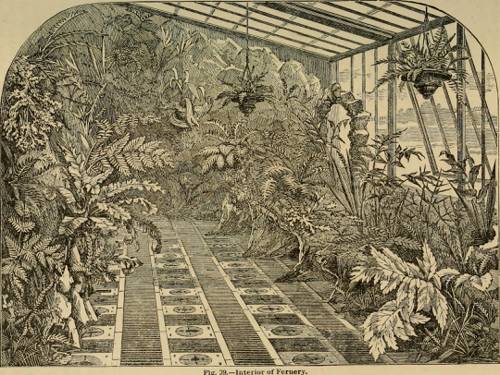
FAQ About Indoor Plant Water Hardness Considerations

What is water hardness and how does it affect indoor plants?
Water hardness refers to the presence of mineral salts, primarily calcium and magnesium, in water. These minerals can affect the absorption of nutrients by plants, potentially leading to nutritional imbalances or deficiencies. Hard water can cause build-up of minerals in the soil, which might affect the plant's growth and overall health. Indoor plants, depending on their species, may be sensitive to mineral concentrations in water.

How can I determine the hardness of my water for my indoor plants?
You can determine the hardness of water by using a home testing kit, which typically includes strips that change color based on mineral concentration. Additionally, contact your local water supplier for a water quality report. Many regions provide information about water hardness as part of their regular reporting.

Are there any signs that my indoor plant may be affected by hard water?
Signs that your plant may be affected by hard water include stunted growth, yellowing of leaves, mineral build-up on the soil or rim of pots, and leaf scorch. Decreased flowering and wilting can also suggest hard water issues. It's important to differentiate these signs from those caused by other factors like pests or diseases.

Which indoor plants are most sensitive to hard water?
Plants that are particularly sensitive to hard water include ferns, orchids, peace lilies, and some tropical houseplants. These species often prefer softer water or rainwater, as they naturally thrive in environments with lower mineral concentrations.

What are the benefits of using soft water for indoor plants?
Soft water can help prevent mineral buildup in soil, which in turn improves nutrient absorption for the plants. This can promote better plant health and growth. Additionally, using soft water can avoid the adverse effects of sodium, often present in softened water, given its potential to harm plant roots and foliage.

How can I soften hard water for watering my indoor plants?
One method to soften hard water is by using rainwater or distilled water, which are naturally soft. Alternatively, a water softener system can be installed, ensuring it's designed to provide water safe for plants by not adding excessive sodium. Boiling water is another method to precipitate minerals; however, it may not completely eliminate hardness.

Is rainwater better than tap water for indoor plants?
Rainwater is generally better for indoor plants than tap water as it is free from chlorine, fluoride, and often has low hardness levels. It also tends to contain beneficial microorganisms and organic compounds that can enhance plant growth. Tap water may sometimes contain chemicals and high levels of calcium or magnesium, which could hinder plant health.

Can too much water hardness be harmful to indoor plants?
Yes, excessive water hardness can harm indoor plants by causing nutrient deficiencies or toxic build-up of minerals like calcium and magnesium in the soil. This can lead to poor plant health, affecting growth, leaf color, and flowering. Plants may also suffer from decreased ability to absorb other essential nutrients.

What role do calcium and magnesium play in plant nutrition?
Calcium and magnesium are essential nutrients for plant health. Calcium contributes to cell formation and stability, while magnesium is vital for photosynthesis and enzyme activation. However, excess amounts due to water hardness can disrupt the balance, making other nutrients less available, therefore damaging plant health.

How often should I check the hardness of water used for indoor plants?
It's beneficial to check the hardness of your water periodically, especially if you notice health issues in your plants. Depending on the initial hardness, you might check once a month or whenever your plants show signs of mineral stress. Regular testing can help in adjusting your watering practices accordingly.

Can I use filtered water for indoor plants to avoid hardness issues?
Using filtered water can reduce some mineral content but isn't necessarily a full solution for softening water completely. Filters like carbon or reverse osmosis can remove chlorine and some minerals, making the water more suitable for sensitive plants. Always ensure the filtration system doesn't add unwanted elements like excessive sodium.

Are there any home remedies to treat hard water for plants?
Home remedies for treating hard water include mixing boiled water with rainwater, or occasionally using lemon juice or vinegar to adjust the pH temporarily. However, these should be used sparingly as they can alter soil pH drastically, potentially harming the plants. It's recommended to test the water and soil pH regularly.

Is it necessary to adjust water hardness for all indoor plants?
Not all indoor plants require adjustments to their water hardness; some plants are more tolerant than others. It's crucial to know the specific needs of your plant species. Succulents and cacti, for instance, generally tolerate a wider range of water hardness compared to tropical plants like ferns and orchids.

How does water hardness affect plant nutrient uptake?
Nutrient uptake can be affected by water hardness due to competition between mineral ions. High concentrations of calcium and magnesium can interfere with the absorption of potassium, nitrogen, and other essential nutrients making them less available to the plant. This imbalance can lead to deficiencies and health issues.

What alternative water sources are ideal for sensitive indoor plants?
Ideal alternative water sources for sensitive plants include rainwater, distilled water, and water treated with reverse osmosis systems. These sources lack the high mineral content that can hinder plant growth, and provide a more balanced hydration method that aligns with the needs of sensitive plants.

How can I tell if my tap water is affecting my indoor plants negatively?
If your tap water is affecting your plants negatively, you might notice signs like reduced growth, leaf discoloration, mineral deposits on pots, and poor flowering. Testing your water for hardness can help determine whether these issues are related to mineral buildup or other water quality concerns.

Can water hardness affect soil pH levels?
Yes, water hardness can affect soil pH levels over time by causing an accumulation of alkaline minerals like calcium carbonate, which can raise soil pH and reduce the availability of some nutrients. Monitoring and adjusting soil pH when necessary can help mitigate these effects.

How do I transition my indoor plants to soft water effectively?
When transitioning to soft water, do so gradually to avoid shocking the plants. Mix soft water with your current water source initially to allow a smooth transition. Monitor plant health closely during this period and make adjustments as necessary based on plant response and soil condition.

Are there any particular times of the year when water hardness considerations are more important for indoor plants?
Water hardness considerations can be more critical during growth stages, such as spring and summer, when plants actively absorb nutrients. These periods can exacerbate mineral-related issues. They're also important when changing water sources, such as during seasonal rain availability if you're using rainwater.

What is the difference between temporary and permanent water hardness, and how do they affect plant health?
Temporary hardness is caused by dissolved bicarbonate minerals and can be removed by boiling. Permanent hardness results from sulfate and chloride compounds and requires chemical treatment or filtration methods. Both types can affect plant health by altering nutrient availability and soil chemistry.
